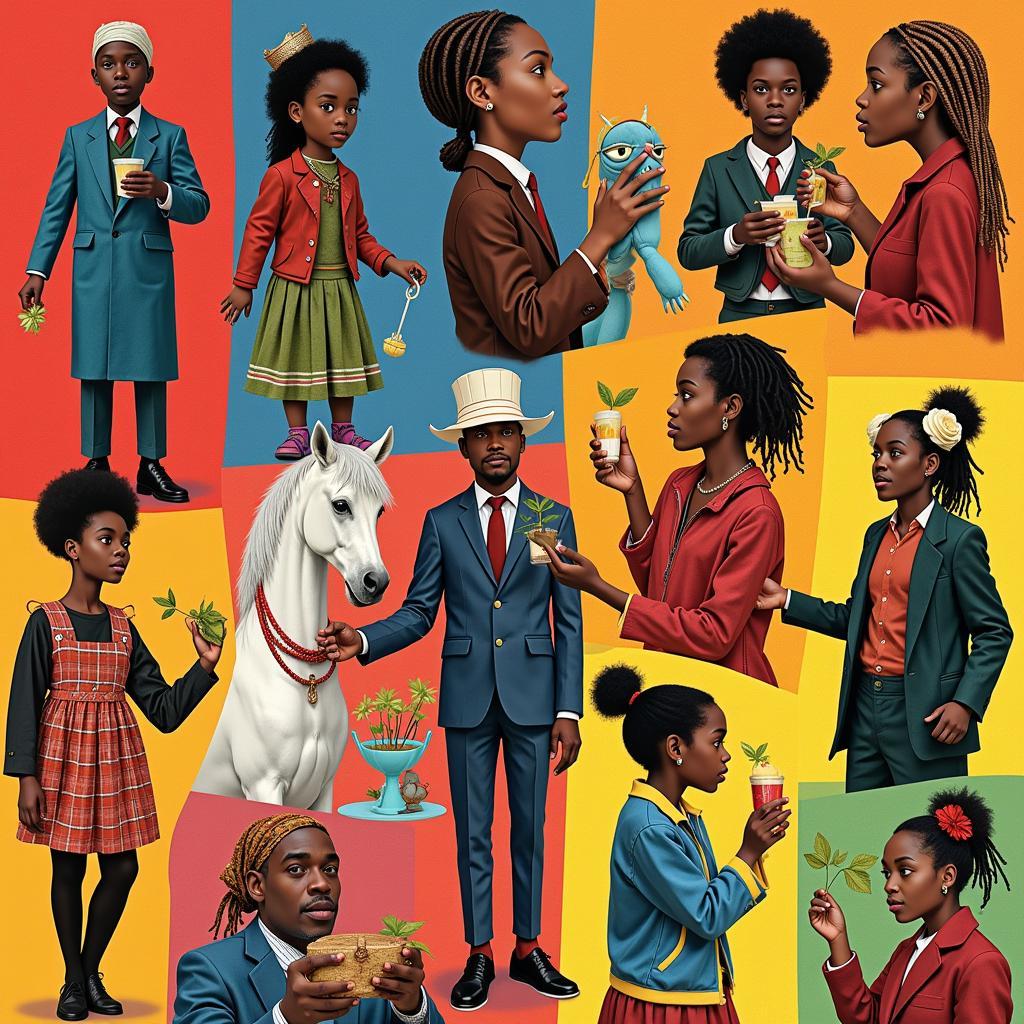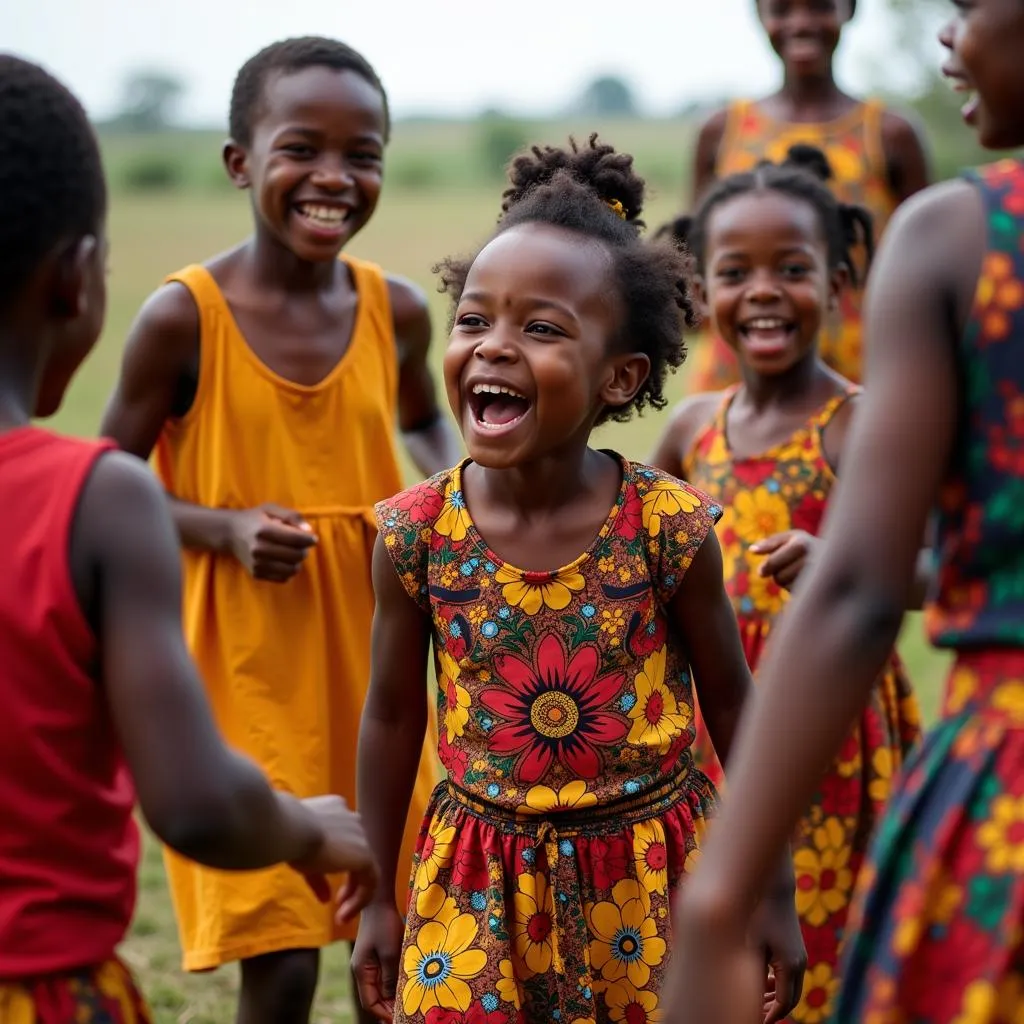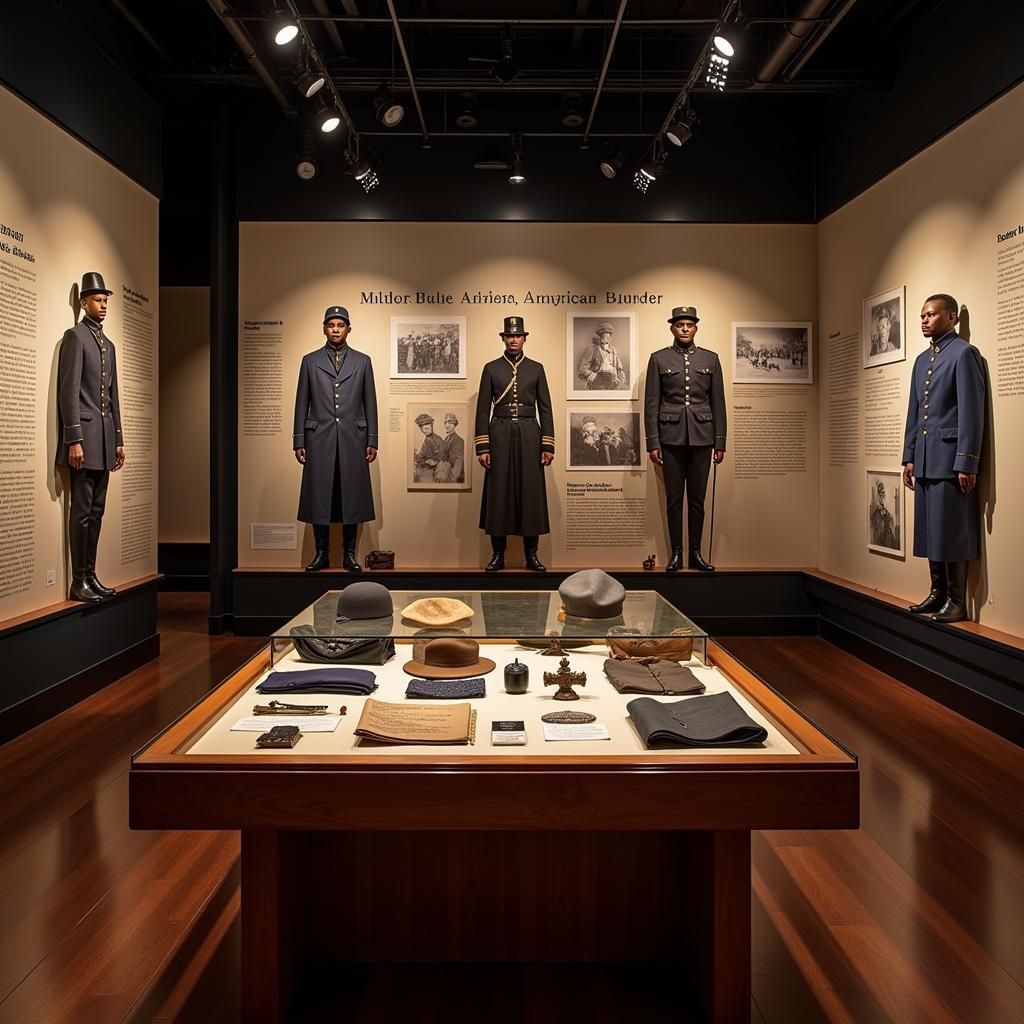African Folktales Tradition: A Journey Through the Continent’s Soul
African Folktales Tradition is a vibrant tapestry woven from centuries of storytelling. These tales, passed down through generations, offer a captivating glimpse into the heart of African culture, beliefs, and values. More than just entertainment, they serve as a crucial bridge connecting the past with the present, preserving ancient wisdom and shaping the identities of future generations.
The Power of Oral Tradition: Keeping History Alive
Before the written word took root in Africa, oral tradition reigned supreme. Folktales, myths, legends, and historical accounts were meticulously memorized and shared through the spoken word. This practice ensured the survival of cultural knowledge, fostering a sense of community and shared history. The griots, master storytellers of West Africa, played a pivotal role in this tradition, serving as living libraries and historians. Their intricate narratives, often accompanied by music and song, breathed life into history, making it relatable and engaging for all who listened.
More Than Meets the Eye: Unveiling the Layers of Meaning
African folktales are renowned for their multi-layered narratives. Beyond the surface level of entertainment, they often carry profound moral lessons, societal values, and reflections on the human condition. Animal characters, frequently imbued with human qualities, become vessels for teaching children about right and wrong, courage, and the consequences of greed. These stories cleverly disguise complex themes within engaging narratives, making them accessible and impactful for audiences of all ages.
For instance, the tale of Anansi the Spider, a popular character in West African folklore, often portrays him as a cunning trickster whose actions, though seemingly mischievous, often highlight important moral dilemmas and the consequences of dishonesty. This playful exploration of ethics makes a lasting impression, shaping moral compasses and promoting critical thinking.
African Folktales Across the Globe: A Diaspora of Stories
The transatlantic slave trade tragically dispersed millions of Africans across the globe. However, amidst the horrors of this forced migration, they carried their rich storytelling tradition with them. Folktales provided solace, a connection to their roots, and a means to pass down their heritage to future generations. As they settled in new lands, these stories adapted, incorporating elements of their new environments and cultures while retaining their core African identity.
From the Caribbean to the Americas, folktales about cunning animals like Br’er Rabbit and the clever trickster figure of Aunt Nancy emerged, showcasing the resilience of African culture and its ability to transcend geographical boundaries. This vibrant fusion of storytelling traditions continues to enrich the cultural landscape of the African diaspora.
 African Diaspora Folktales
African Diaspora Folktales
Why African Folktales Matter Today
In a world increasingly dominated by technology and fast-paced living, the tradition of African folktales remains as relevant as ever. They offer a timeless connection to the past, reminding us of the importance of community, oral history, and the power of storytelling. By delving into these captivating narratives, we gain a deeper understanding of the African experience, appreciating its diversity, wisdom, and enduring legacy.
Exploring the Magic of African Folktales:
- Read: Numerous books and online resources offer a vast collection of African folktales.
- Listen: Immerse yourself in the oral tradition by attending storytelling events or exploring audio recordings.
- Share: Keep the tradition alive by sharing these stories with others and discussing the valuable lessons they impart.
By embracing and celebrating African folktales, we contribute to the preservation of a rich cultural heritage and ensure that its wisdom continues to inspire generations to come.
FAQ: Unraveling the Mysteries of African Folktales
1. What are the common themes found in African folktales?
African folktales often explore themes of community, morality, the battle between good and evil, the importance of respect for elders, and the power of wit and cunning.
2. Why are animals often the main characters in these stories?
Animals provide a relatable and engaging way to convey complex human experiences and moral lessons. Their characteristics often symbolize specific human traits, making the stories more memorable and impactful.
3. How have African folktales influenced other forms of art?
Folktales have inspired countless literary works, plays, music, dance, and visual art forms both within Africa and across the diaspora, showcasing their enduring influence on creative expression.
4. Where can I find authentic resources for African folktales?
Libraries, online archives dedicated to folklore, and cultural organizations often provide access to authentic collections of African folktales. Additionally, seeking out storytellers within your community can provide a richer, more immersive experience.
5. What is the significance of preserving African folktales?
Preserving these tales ensures the survival of cultural memory, language, and traditional values. It allows future generations to connect with their heritage and learn from the wisdom embedded within these stories.
Beyond the Tales: Discover More About African Culture
Interested in delving deeper into the richness of African culture? Explore these captivating articles:
African folktales tradition is a testament to the power of storytelling and its ability to transcend time and space. By embracing these narratives, we open ourselves to a world of wisdom, imagination, and cultural understanding.
Need assistance or have questions about African culture? Contact us!
Phone: +255768904061
Email: kaka.mag@gmail.com
Address: Mbarali DC Mawindi, Kangaga, Tanzania
Our dedicated team is available 24/7 to assist you!



